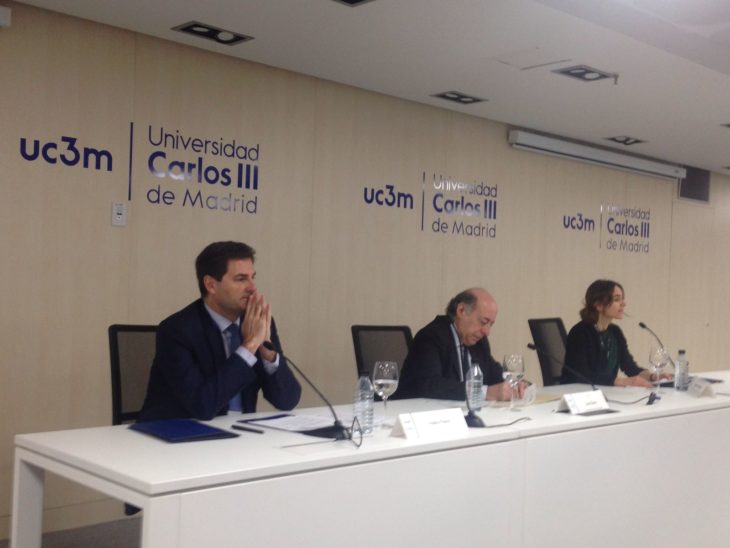The workshop generated a diagnosis of the situation, identified good practices and issued strategic recommendations that may have an impact on events such as the 8th Summit of the Americas, which is taking place in 2018 in Lima (Peru)

The corruption perceptions index compiled by Transparency International (TI) in 2017 revealed a disappointing figure: more than two-thirds of the world’s countries suffer from this scourge to a high degree. In Latin America, a large number of countries are in the red category and only Chile, Uruguay and Costa Rica obtained scores above the pass mark.
States face serious difficulties in combating an increasingly complex phenomena that transcends national borders, this situation requires new strategies for action and a strong political will to implement them.
In this context, international cooperation is emerging as an indispensable tool for effectively combating corruption, as the search for evidence to prove that an illegal act has been committed requires collaboration between different jurisdictions. This occurs, for example, when locating assets abroad or in requests for mutual legal assistance or extradition. In addition, transnational corruption cases are often complex and politically sensitive, experts say. Fighting corruption, therefore, requires political will, good planning and a great deal of resources.
While significant progress has been made in investigating and prosecuting serious crimes at the bilateral, regional and international levels, significant challenges remain in the investigation of corruption cases. An OECD survey undertaken in 2015 showed that 70% of officials working on anti-corruption consider that there are obstacles to mutual legal assistance that adversely affect their work. These impediments are associated with language differences, dual criminality, immunity, tax or banking secrecy issues.
In light of this situation, on 5 and 6 March, Gvernance area in the European Union EUROsociAL+ Cooperation Programme organised a workshop to strengthen international cooperation in the fight against corruption. The workshop was organised in cooperation with Transparency International (TI) and held in Madrid. The activity was supported by the Carlos III University of Madrid (UC3M) within the framework of the R&D projects: ‘The Criminal Responsibility of Transnational Corporations for Human Rights and Environmental Violations’ and the ‘Inter-university Culture of Legality Programme’.
The forum brought together representatives from the Council of Europe’s Group of States against Corruption (GRECO), the OECD and the Programme for Assistance against Transnational Organised Crime (PAcCTO), as well as officials from government departments and justice institutions from Argentina, Brazil, Colombia, Spain and Portugal.
Civil society was represented by experts from TI chapters from Argentina, Brazil, Peru, and Venezuela. Lecturers from the universities of Buenos Aires, Complutense and Carlos III of Madrid also took part.
The opening of this meeting was attended by Juan Romo, Rector of UC3M and Pedro Flores, Director of the International Foundation for Iberoamerica Administration and Public Policies (FIIAPP), along with the Regional Minister for the Americas and Luciana Torchiaro from the Transparency International (TI) Secretariat in Berlin. The opening talk was given by the Colombian Attorney General, Fernando Carrillo, and the former President of Transparency International, Jose Ugaz.
The workshop generated a diagnosis of the situation, identified good practices and issued strategic recommendations that may have an impact on events such as the 8th Summit of the Americas, which is taking place in 2018 in Lima (Peru), the G-20 and C-20 taking place this year in Argentina or the summit between the European Union and the Community of Latin American and Caribbean States.
EUROsociAL+. Área de políticas de gobernanza / governance policies unit, FIIAPP



